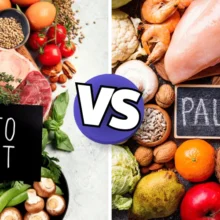Low Calorie Fruits: 2024’s Ultimate Guide to Eating Smart & Losing Weight
Embarking on a weight loss journey often revolves around careful considerations of diet, exercise, and overall lifestyle changes. Among these, dietary choices play a pivotal role in determining the success of weight management efforts. Low calorie fruits are essential components of a balanced diet aimed at shedding extra pounds effectively. These fruits not only offer nutritional richness but also come packed with flavors that do not weigh heavily on your daily calorie intake.
In this blog post, we’ll explore the variety and benefits of incorporating low calorie fruits into your diet. Whether you are a seasoned dieter or just starting your weight loss journey, understanding how these fruits fit into your nutritional regimen can help you make smarter choices that contribute to lasting health benefits and successful weight management.
Table of Contents
What Are Low Calorie Fruits?
Low calorie fruits are those that contain fewer calories per serving compared to other fruit varieties. These fruits are typically high in water and fiber, which not only helps in keeping the calorie count low but also aids in satiety and hydration. Understanding what qualifies as a low calorie fruit can be a game-changer for anyone looking to lose weight or maintain a healthy lifestyle efficiently.
Defining Low Calorie Fruits
Low calorie fruits are defined by their calorie content, generally containing less than 50 calories per 100 grams. Examples include strawberries, peaches, and cantaloupe. Their low calorie nature makes them an excellent choice for snacking or adding to meals without significantly increasing calorie intake.
The Significance of Low-Calorie Intake for Weight Loss
Consuming foods with fewer calories is a fundamental aspect of weight loss. Low calorie fruits fit perfectly into this strategy as they provide essential nutrients and energy while keeping the calorie load minimal. This helps create a calorie deficit, which is necessary for weight loss, without compromising on nutritional intake.
Top 10 Low Calorie Fruits for Weight Loss
When it comes to weight loss, choosing the right fruits can make a significant difference. Here, we explore the top 10 low calorie fruits that are not only delicious but also offer the best benefits for those seeking to reduce their calorie intake. These fruits are nutrient-dense, making them the perfect addition to any weight loss diet.
1. Strawberries
Strawberries are not only juicy and delicious but also remarkably low in calories, with about 32 calories per 100 grams. They are rich in vitamins, antioxidants, and fiber, making them a great choice for a healthy snack.
2. Apples
Apples are a popular low calorie snack, containing approximately 52 calories per 100 grams. They also provide a good amount of fiber, which helps in maintaining fullness and controlling appetite.
3. Oranges
Oranges are well-known for their vitamin C content and have about 47 calories per 100 grams. They are hydrating and can be a refreshing part of any diet, especially for weight loss.
4. Watermelon
Watermelon is highly hydrating and has a very low calorie content, with about 30 calories per 100 grams. It’s also rich in antioxidants and vitamins.
5. Papaya
Papaya is another excellent low calorie fruit choice, offering about 43 calories per 100 grams. It is also known for its digestive enzymes, which aid in digestion and nutrient absorption.
6. Peach
Peaches offer a sweet taste and soft texture with only 39 calories per 100 grams. They are also a good source of vitamins A and C.
7. Cantaloupe
Cantaloupe is both nutrient-dense and low in calories, providing just 34 calories per 100 grams. It’s a fantastic source of vitamin A, vitamin C, and potassium.
8. Blackberries
Blackberries are not only low in calories, approximately 43 calories per 100 grams, but also high in dietary fiber, which helps in weight management.
9. Kiwi
Kiwi is known for its high vitamin C content and low calorie count, with about 61 calories per 100 grams. It’s also packed with fiber and other vitamins.
10. Grapefruit
Grapefruit helps in weight loss not only by being low in calories, around 42 calories per 100 grams, but also through its fat-burning enzymes, enhancing its appeal as a diet-friendly fruit.
How Low Calorie Fruits Aid in Weight Loss
Integrating low calorie fruits into your diet can significantly enhance your weight loss efforts. These fruits are not only low in calories but are also rich in nutrients that support healthy weight management. Let’s explore how these fruits contribute to weight loss and why they should be a staple in your diet.
Calorie Deficit Through Low Calorie Fruits
Low calorie fruits help create a calorie deficit by providing fewer calories than many other foods. Eating these fruits can reduce overall calorie intake while still satisfying hunger, primarily due to their high water and fiber content.
Role of Fiber in Weight Management
Many low calorie fruits are high in dietary fiber, which slows digestion and increases the feeling of fullness. Fiber helps in controlling appetite and reducing the likelihood of overeating, which is crucial for maintaining a healthy weight.
Hydration and Metabolism
Fruits like watermelon and oranges are high in water content, which aids in hydration and helps keep the metabolism functioning efficiently. Proper hydration is essential for metabolic health, and a well-hydrated body can burn calories more effectively.
Nutrient Density and Weight Loss
Low calorie fruits are packed with vitamins, minerals, and antioxidants, making them nutrient-dense. This means they provide more nutritional value per calorie, which is beneficial for weight loss as it ensures you get essential nutrients without consuming a lot of calories.
Incorporating Low Calorie Fruits into Your Diet
Incorporating low calorie fruits into your diet is an effective strategy for enhancing weight loss while enjoying a variety of flavors and textures. This section will provide practical tips on how to seamlessly add these fruits to your daily meals, ensuring you reap both their nutritional benefits and their potential for aiding weight management.
Creative Ways to Include Low Calorie Fruits in Daily Meals
Integrating low calorie fruits into your diet doesn’t have to be complicated. Here are some creative ways to include them:
- Breakfast: Add sliced strawberries or kiwi to your oatmeal or yogurt.
- Lunch: Toss a handful of blueberries or apple slices into your salad for a refreshing twist.
- Snacks: Keep whole fruits like peaches or small oranges handy for a quick, healthy snack.
- Desserts: Use fruits like papaya or watermelon to make light, delicious desserts such as fruit sorbets or fresh fruit salads.
Healthy Fruit-Based Recipes for Weight Loss
To help you get started, here are a couple of simple, fruit-based recipes:
- Berry Smoothie Bowl: Blend frozen berries with Greek yogurt and a touch of honey for a filling breakfast or snack.
- Cantaloupe and Cottage Cheese Plate: Serve slices of cantaloupe with low-fat cottage cheese for a balanced, protein-rich meal.
Tips for Maximizing the Benefits of Low Calorie Fruits
To fully benefit from low calorie fruits, consider the following tips:
- Moderation is Key: Even low-calorie options can contribute to excess calorie intake if not consumed in moderation.
- Mix and Match: Combine different fruits to keep your diet interesting and maximize the range of nutrients.
- Preparation Matters: Opt for fresh or frozen fruits to avoid added sugars often found in canned or processed fruits.
Comparing Calories: Low Calorie Fruits vs. Other Snack Options
Choosing low calorie fruits over other common snack options can significantly affect your calorie intake and overall health. This section compares the caloric content of low calorie fruits with that of typical snack foods, illustrating why fruits are a superior choice for anyone focused on weight loss or maintaining a healthy diet.
Calorie Content of Low Calorie Fruits vs. Snack Foods
Low calorie fruits generally contain significantly fewer calories than packaged snacks. For example, a serving of apple slices (about 100 grams) contains roughly 52 calories, whereas a similar amount of potato chips can contain over 500 calories. This stark contrast highlights the advantage of choosing fruits when trying to reduce calorie intake.
Health Benefits of Choosing Fruits Over Processed Snacks
Apart from the lower calorie count, fruits offer vitamins, minerals, and fiber, which are often lacking in processed snacks. These nutrients contribute to overall health, enhance digestion, and can improve your skin and cardiovascular health.
Making Smart Snacking Choices
To make the most of snacking on low calorie fruits, consider these tips:
- Choose Whole Fruits: Opt for whole fruits instead of fruit juices or dried fruits, which can contain added sugars and significantly higher calories.
- Pair with Protein: Combine fruits with proteins like yogurt or nuts to balance the meal and increase satiety.
- Plan Ahead: Prepare fruit-based snacks in advance to ensure you have healthy options readily available, preventing the temptation to reach for less healthy alternatives.
Potential Health Benefits Beyond Weight Loss
While the primary focus of incorporating low calorie fruits into your diet might be weight loss, these fruits also offer a wide array of other health benefits. This section delves into how these nutritious options not only support weight management but also contribute to overall health improvements.
Improved Digestion
Many low calorie fruits are rich in dietary fiber, which is essential for healthy digestion. Fiber helps to regulate the digestive system, prevent constipation, and even reduce the risk of digestive disorders like diverticulitis and irritable bowel syndrome.
Antioxidant Effects
Fruits like blueberries, strawberries, and blackberries are packed with antioxidants. These compounds combat oxidative stress and inflammation in the body, which are linked to chronic diseases, including cancer and heart disease.
Enhanced Heart Health
Consuming fruits that are low in calories and high in fiber and potassium can support heart health. These nutrients help to lower blood pressure, reduce cholesterol levels, and decrease the risk of heart disease.
Skin Health
The vitamins and water content found in low calorie fruits can also benefit skin health. Vitamins C and E, for example, protect the skin against damage from the sun and environmental pollutants, while hydration helps to keep the skin supple and clear.
Challenges and Considerations When Eating Low Calorie Fruits
While low calorie fruits are an excellent addition to a healthy diet, there are a few challenges and considerations to keep in mind. This section addresses potential dietary concerns and provides recommendations for maintaining a balanced intake of these fruits.
Managing Sugar Content in Fruits
Although low calorie fruits are beneficial, they still contain natural sugars. Individuals with specific health conditions, such as diabetes, should monitor their fruit intake to manage blood sugar levels effectively. Choosing fruits with a lower glycemic index and balancing them with other nutrients can help mitigate this concern.
Allergies and Intolerances
Some individuals may experience allergies or intolerances to certain fruits. It’s important to identify any adverse reactions and adjust your fruit choices accordingly. Consulting with a healthcare provider can provide personalized guidance.
Balancing Nutritional Needs
Relying too heavily on fruits, even low-calorie options, can lead to nutritional imbalances. It’s crucial to incorporate a variety of food groups into your diet to ensure you receive a balanced array of nutrients. Fruits should complement other protein sources, fats, and carbohydrates, not replace them.
Consideration of Pesticides and Organic Options
Choosing organic low calorie fruits can be a way to reduce exposure to pesticides commonly used in agricultural production. If organic options are not accessible or affordable, washing fruits thoroughly under running water can help reduce residue from pesticides.
Success Stories: Real-Life Impact of Low Calorie Fruits on Weight Loss
The effectiveness of low calorie fruits in supporting weight loss is not just theoretical. Many individuals have experienced significant health improvements by integrating these fruits into their diets. This section shares real-life success stories that highlight the transformative power of making healthier food choices.
Overcoming Weight Plateaus with Berries
One remarkable story involves Sarah, a 35-year-old who struggled with a weight loss plateau. By incorporating a variety of berries into her diet, such as strawberries and blackberries, she not only overcame the plateau but also improved her overall health, thanks to the high fiber and antioxidant properties of these fruits.
Improved Energy and Weight Loss with Citrus Fruits
Another success story comes from Mike, a 42-year-old office worker who replaced his mid-morning snack of coffee and doughnuts with oranges and grapefruits. This simple swap led to a decrease in his daily calorie intake and a significant boost in vitamin C, ultimately helping him lose weight and feel more energized throughout the day.
Key Takeaways from These Success Stories
These stories underscore a common theme: incorporating low calorie fruits into one’s diet can lead to substantial health benefits, including weight loss and increased energy levels. Moreover, these fruits can be easily incorporated into any meal, making them a versatile option for improving dietary habits.
Embracing Low Calorie Fruits for a Healthier Lifestyle
In conclusion, low calorie fruits are not only beneficial for those seeking to lose weight but also offer numerous health advantages that extend beyond simple weight management. These fruits are essential components of a balanced diet, contributing to improved digestion, better skin health, and enhanced heart function due to their high fiber, water, and antioxidant content.
By incorporating a variety of low calorie fruits into your daily regimen, you can enjoy delicious flavors while reaping the rewards of a nutrient-dense, low-calorie diet. Whether you’re replacing higher-calorie snacks with fruit or adding them to meals for increased satiety, these fruits can help you maintain a healthy calorie deficit without sacrificing taste or nutrition.
As we’ve seen through the success stories and comparative analyses, making small, consistent changes to include more fruits in your diet can lead to significant health improvements and weight loss success. So why not start today? Embrace low calorie fruits as a staple part of your diet and watch as they transform your approach to health and wellness.
Frequently Asked Questions About Low Calorie Fruits
What are the best low calorie fruits for weight loss?
The best low calorie fruits for weight loss include strawberries, apples, watermelon, and grapefruit. These fruits are not only low in calories but also high in fiber and water, helping you feel full and satisfied while consuming fewer calories.
How can low calorie fruits help in weight loss?
Low calorie fruits help in weight loss by providing a high volume of food with fewer calories. This helps create a calorie deficit necessary for weight loss while the fiber in these fruits helps increase satiety, reducing the overall food intake throughout the day.
Are there any low calorie fruits that are particularly good for digestion?
Yes, fruits like apples, pears, and berries are excellent for digestion because they are high in dietary fiber, which helps regulate bowel movements and prevent constipation.
Can eating low calorie fruits help improve skin health?
Absolutely. Many low calorie fruits are rich in vitamins C and E, which are antioxidants that protect the skin from damage caused by the sun and pollution. The water content in these fruits also helps to hydrate the skin, promoting a healthier complexion.
Is it possible to eat too many low calorie fruits?
While low calorie fruits are healthy, it is possible to overeat any food. Eating a large amount of fruits can lead to excessive sugar intake, which might not be beneficial, especially for individuals with blood sugar management issues. It’s important to maintain a balanced diet.
How should I incorporate low calorie fruits into my diet?
Incorporate low calorie fruits into your diet by adding them to your breakfast cereal, using them as snacks between meals, blending them into smoothies, or using them as a sweet addition to salads. The versatility of fruits makes them easy to include in meals throughout the day.
For more insights on achieving a healthier lifestyle, check out our other informative articles on topics such as Body Detoxification, Healthy Eating, Quick Weight Loss, and Weight Loss Diets. Dive deeper to find strategies and tips that can help you reach your wellness objectives!





